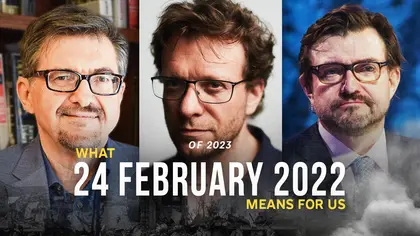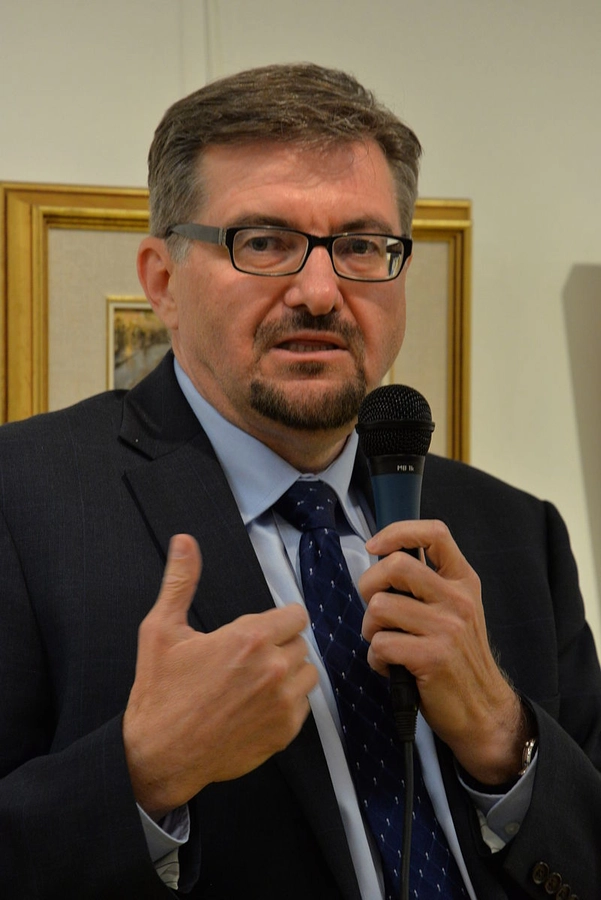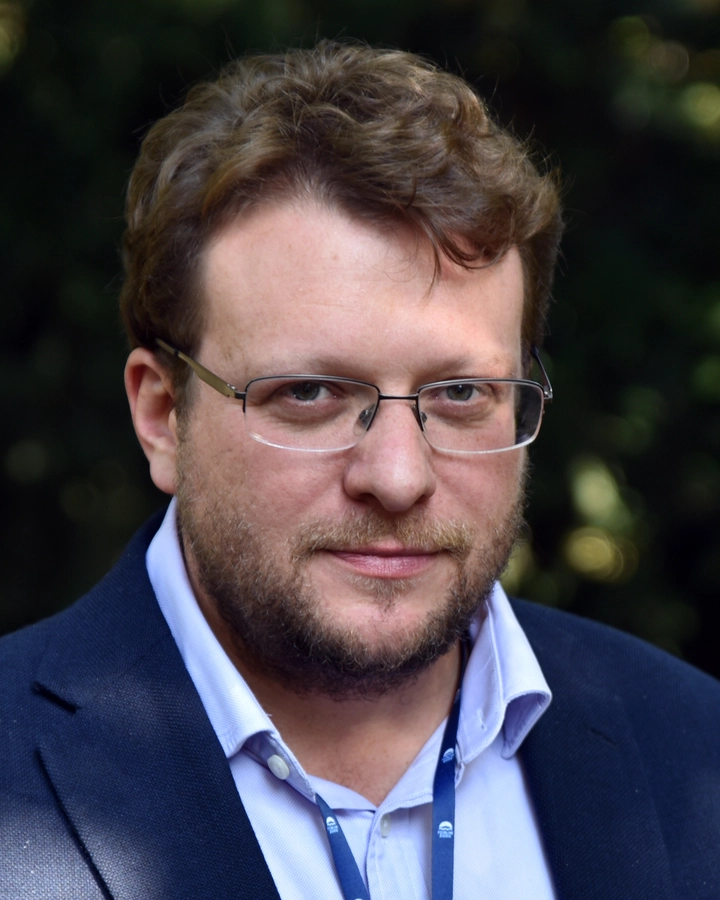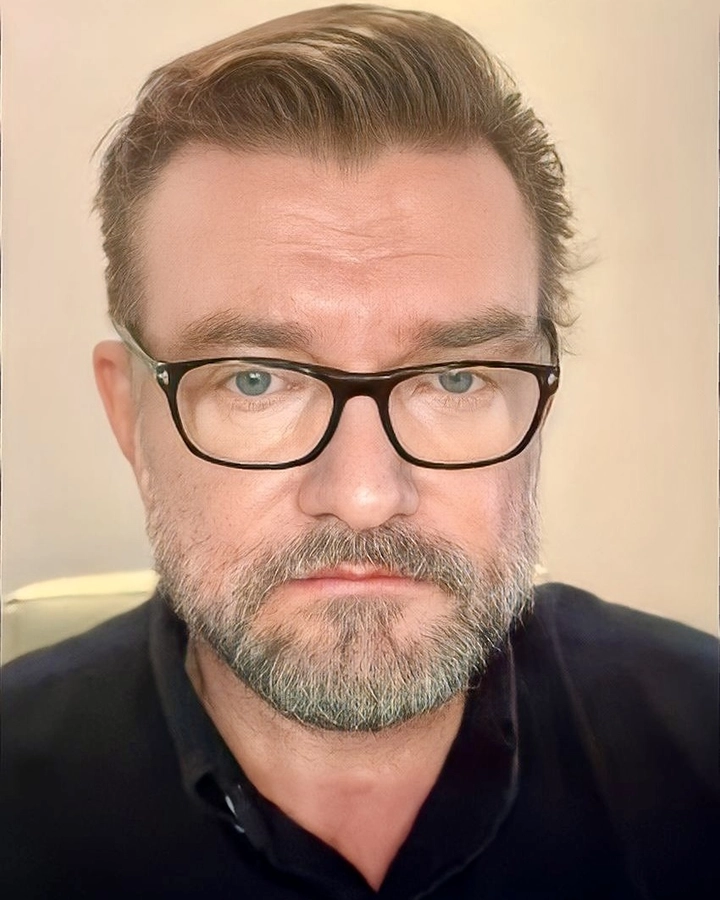Serhii Plokhy
JOIN US ON TELEGRAM
Follow our coverage of the war on the @Kyivpost_official.
Russia’s aggression against Ukraine produced a nineteenth-century war fought with twentieth-century tactics and twenty-first-century weaponry. Its ideological underpinnings came from the Russian imperial era; its strategy was borrowed by the Kremlin from World War II-era manuals; and its key feature is the war of drones. Ukraine is leading the fight for the future of the democratic world, and the world should continue to support it. This is not just about Ukraine. It is about the future of the world as we know it.
Serhii Plokhy is professor of history and director of the Ukrainian Research Institute at Harvard University. His most recent book is “The Russo-Ukrainian War: A Return of History."
Peter Pomerantsev
After two years of war, it's clear Ukraine will heroically fight for its freedom. But this war is no longer just about Ukraine, it’s about whether the West can still act coherently to confront the Russian threat, and beyond that the threat of rising and aggressive authoritarian great powers. For all the anxiety emanating from America, we can also glimpse a new future. It's one where democracies across the world come together to outproduce, out arm and deter Putin's gang of dictators. Ukraine will be at the cutting edge of that community. But democracies can only compete in the 21st century if we work together- separately we will be picked off one by one.

‘We Need to End That Horrible, Horrible War’ – Ukraine at War Update for Dec. 23
Peter Pomerantsev is a senior fellow at SNF Agora Institute, Johns Hopkins University, and the author of is the author of “Nothing Is True and Everything Is Possible: Adventures in Modern Russia.”
Evgeny Kiselev
Memories about the beginning of the war?
I didn't sleep at all that night. The premonition of war hung thickly in the air, so thickly that it seemed to have become some kind of material substance, as if it could be touched by hand. I read the posts of my friends, acquaintances, colleagues on social networks. Many were also awake. In their minds, no one could believe that the war was about to begin. But intuition – the primal instinct for danger inherited from our ancestors – was telling us what was about to begin.
There was a live broadcast from New York on the Internet. The UN Security Council was in session. It discussed Ukraine's protest against Moscow's recognition of the independence of the so-called Donbas republics. Western diplomats read out proper, politically correct speeches, expressing deep concern about Putin's actions, about the categorical inadmissibility of violating international law, and about the inviolability of borders.
Suddenly, explosions rang out somewhere in the distance. My house in Kiev stood on a hill above Podil - from the windows of my apartment there was a view far to the east. Somewhere there, in the distance, on the left bank of the Dnipro, flashes of distant explosions could be seen. There was no doubt: a rocket attack on the suburbs of Kyiv was happening – maybe the strikes were being carried out on Boryspil airport.
The words of an old Soviet song immediately came to mind: "On June 22, at exactly four in the morning, Kyiv was bombed, we were told that the war had begun." I glanced at my watch: it was not yet four o'clock in the morning.
On the computer screen, the meeting of the UN Security Council continued as if nothing had happened. Following the same agenda that has just become completely and irrevocably obsolete before my eyes. I wanted to shout: "Someone, tell them there that the war has already begun! It's too late to express deep concern. Putin had your deep concern, you know where.”
At that moment, there was the terrible sound of an approaching plane. It was as if a jet fighter jet had passed over the roof of my house, almost scraping past it. Later, they will tell me that such a sound is made by a cruise missile flying low towards its target.
Then I begin to see all sorts of things – a highway full of cars to the horizon, like in some disaster movie. A highway leading to the West, crowds of refugees, trains being stormed packed to the brim with women, children, cats, dogs. They don’t cry or moan, but in subdued voices share information about who’s been killed or are missing…. Grief is also so thickly dissolved in the air that you feel it physically.
But in this picture too of the first night of the war: diplomats on the screen, ceremoniously holding forth at the UN to the accompaniment of explosions and the roar of cruise missiles. This image constantly appears before my eyes.
At 4:30 a.m. Kyiv time, Putin finally appears on TV and in effect declares war on Ukraine. Just like then, back in 1941, when Hitler's Germany declared war on the USSR after the fact, when Luftwaffe planes were already bombing Ukrainian cities, and German tanks were rolling on Ukrainian soil.
Only an hour and a half after the start of the invasion, Ukraine's representative to the UN, having finally been given the floor, announces that the Russian president has declared war on his country 45 minutes earlier, and that it was already in full swing.
But I found this out this later, from the transcript of the meeting. By then, I had stopped watching the broadcast – it didn't make sense.
Two years later, recalling all this, I think again and again: only victory over the aggressor can restore peace in Europe. No diplomacy, no negotiations, no Security Council, or that the UN General Assembly will stop the distraught Kremlin dictator. Only military defeat. There is no other way.
Evgeny Kiselev is a Russian television journalist, who before he was forced to leave Russia for Ukraine, was the host of the NTV weekly news show Itogi in the 1990s, and one of Russia’s best known television journalists. He is active in the Russian democratic opposition.
You can also highlight the text and press Ctrl + Enter









